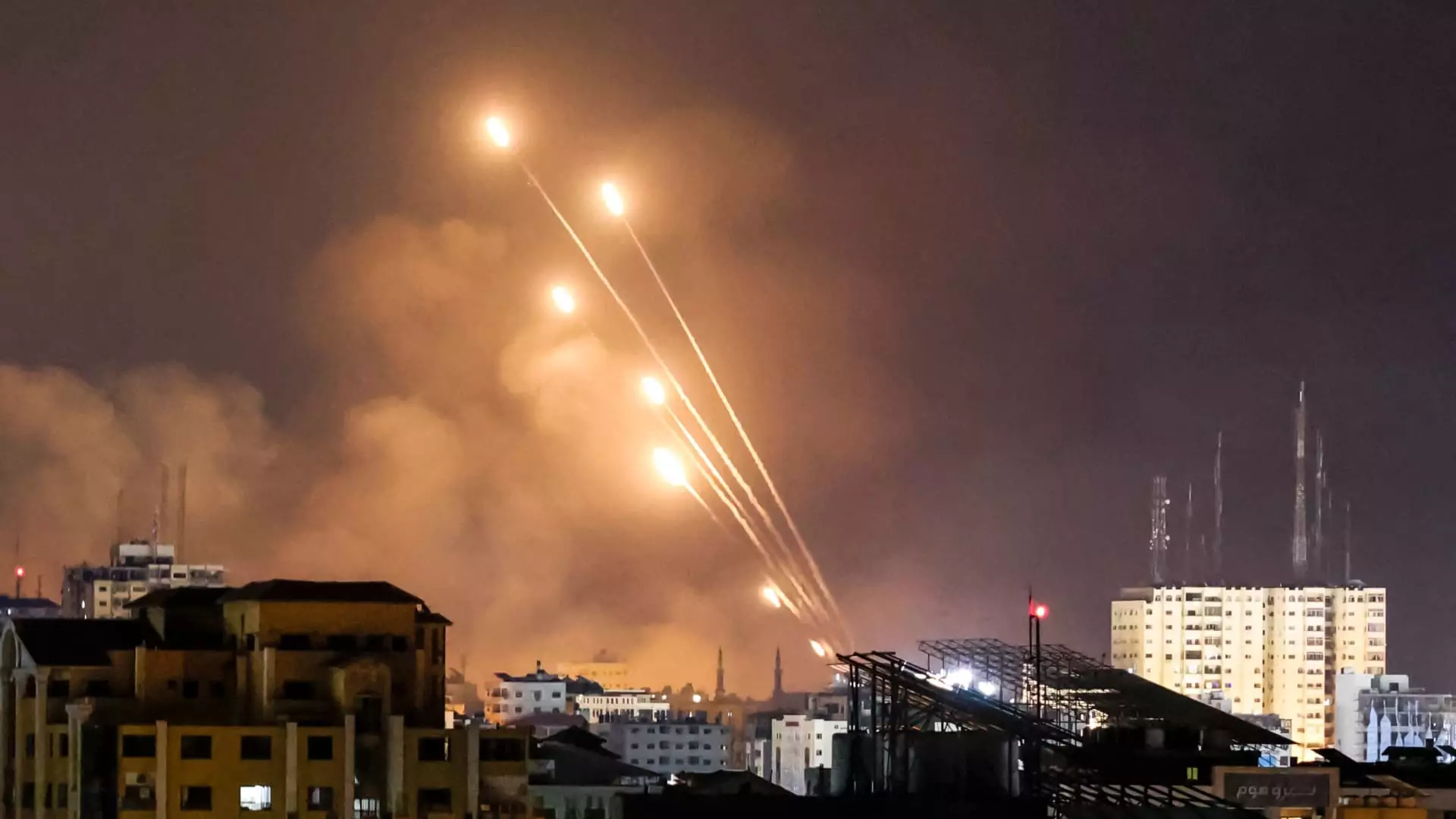In a surprising turn of events, the Israel-Hamas conflict has entered its third day following a bold attack by Palestinian militants Hamas on Israel. This unexpected aggression has led to a significant jump in oil prices, with the global benchmark Brent trading 4.53% higher at $88.41 per barrel on Monday. Similarly, U.S. West Texas Intermediate futures saw a rise of 4.69% to $88.67 per barrel. It seems that the severity of the attack has created a knee-jerk reaction in the oil market, prompting these price increases.
While the surge in oil prices may initially seem significant, analysts caution that it is likely to be a temporary response. Vivek Dhar, the director of mining and energy commodities research at Commonwealth Bank, asserts that for the conflict to have a long-lasting impact on oil markets, there needs to be a sustained reduction in oil supply or transport. History has proven that conflicts such as these tend to lead to temporary price increases that can easily be overshadowed by other market forces. Therefore, it is unlikely that the current situation will have a lasting effect on oil prices.
One important factor to consider is that neither Israel nor the Palestinian territories are major players in the global oil market. Israel has two oil refineries with a combined capacity of almost 300,000 barrels per day, but it produces virtually no crude oil and condensate. Similarly, the Palestinian territories do not produce any oil according to data from the U.S. Energy Information Administration. Therefore, the conflict itself does not directly endanger any major sources of oil supplies.
Although the conflict does not directly impact oil supplies, it still poses a potential threat due to its proximity to key oil-producing and exporting regions. Of particular concern is Iran, a country that is rich in oil resources. If western countries officially link Iranian intelligence to the Hamas attack, Iran’s oil supply and exports could face immediate downside risks. The U.S. has previously limited Iran’s oil exports through sanctions, and any further implications could lead to a significant impact on global markets. Experts warn that if Iran is drawn into the conflict, there could be further supply issues, which would cause oil prices to rise.
There is also the possibility that the conflict could escalate regionally, involving other actors such as Lebanon’s militant group Hezbollah. Should the U.S. enforce sanctions on Iranian exports, it could have a dramatic effect on the oil market. Josh Young, the Chief Investment Officer of energy investment firm Bison Interests, anticipates an increase in oil prices of around $5 per barrel for West Texas Intermediate. Concerns regarding the Strait of Hormuz, a critical oil transit chokepoint between Oman and Iran, further heighten worries about potential supply disruptions. Rapidan Energy Group’s President, Bob McNally, predicts that a conflict between Israel and Iran could lead to an increase of $5 to $10 in oil prices.
However, McNally emphasizes that it is not just Iran that investors need to monitor closely. Crude prices have the potential to rise even higher if Hezbollah, the Lebanese militant group, becomes involved in the conflict. The fear is that the fighting could spread and pose a much larger threat to the oil market. In such a scenario, the impact on oil prices could be significant.
While the recent attack by Hamas on Israel has prompted a surge in oil prices, analysts remain cautious about the long-term impact. The conflict itself does not directly jeopardize major sources of oil supplies, but concerns surrounding Iran and potential regional escalation continue to raise uncertainty. As the situation unfolds, it remains critical for investors and market participants to closely monitor developments to gauge the true impact on oil prices and global markets.


Leave a Reply